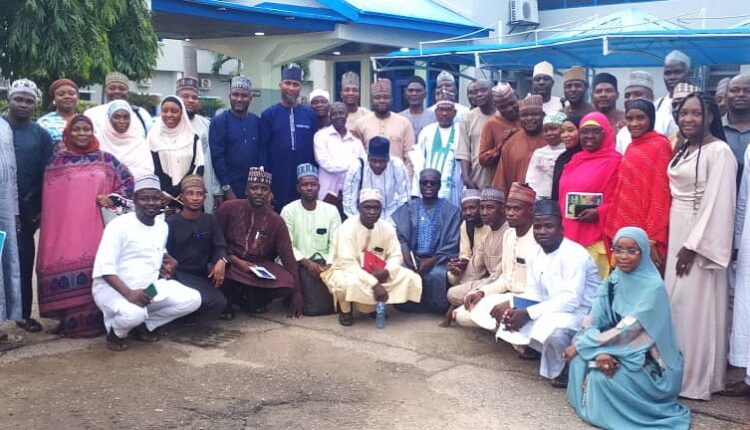PACE Bridges Decades-Long Rift, Unites Jigawa CSOs for Development
By Ahmed Rufa’i in Dutse
For years, Jigawa’s civil society groups walked on opposite sides of the street. Once dynamic and outspoken, they fell into mistrust, rivalries, and unresolved disputes that left the sector fractured and weak. Instead of forming a powerful bloc for accountability under the Open Government Partnership (OGP), the state’s CSOs became locked in disunity, and citizens lost a vital voice.
Last week in Kaduna, the tide turned. At the Pyramid ASSA Hotel, civil society leaders, government officials, private sector players, academics, media, and development partners gathered for a three-day training on coalition building and citizen engagement. Organized by the Partnership for Agile Governance and Climate Engagement (PACE) with support from UK International Development, the event became more than a workshop — it became a healing ground.

Since Jigawa’s creation 34 years ago, CSOs have been engines of action in health, education, climate, and governance. But a failed coalition effort years earlier left bitterness. Leadership disputes and legitimacy battles erupted into open conflict, stalling progress for nearly a decade.
“The coalition remained in crisis for years. We could not achieve the objectives for which it was formed,” one participant admitted in Kaduna.
This year, PACE waded in with mediation and dialogue. After weeks of bridge-building, the breakthrough came: CSOs unanimously endorsed Comrade Isah Mustapha as co-chair of a new platform — the Jigawa Coalition for Climate Action, Governance, and Economic Empowerment (JC-CAGE).
JC-CAGE has set its compass on four urgent priorities: social protection, economic empowerment, climate action, and governance. Its mission is to amplify citizen voices and ensure they shape government decisions.
According to PACE State Team Lead, Muiz Adeniran, the Kaduna workshop sharpened the skills of 65 participants in project design, conflict resolution, advocacy, and monitoring.
“We identified 28 pressing issues but agreed to focus on two that demand immediate collective action. The coalition now has the skills to engage citizens, design sustainable projects, and measure impact,” Adeniran said.
Sessions also stressed inclusivity, urging CSOs to give women, youth, and people with disabilities a central role in shaping the coalition’s work.
The gathering rekindled optimism.
“The program has equipped us with the skills to design effective advocacy strategies that prioritize community needs,” said Fatima Abdulhafiz.
Facilitator Dr. James Zasha highlighted sustainability: “We expect JC-CAGE to play a pivotal role in tackling Jigawa’s challenges and promoting inclusive development.”
For Comrade Mustapha, the coalition’s rebirth is a second chance: “We are committed to working as one, with integrity and shared purpose, to serve our state,” he declared.
Even religious leaders embraced the revival. Habibu Aminu, Deputy Chief Imam of Hadeija, prayed that the coalition’s work “be guided by wisdom, integrity, and commitment to the well-being of Jigawa State and beyond.”
JC-CAGE’s immediate agenda includes expanding access to economic opportunities, building resilience against climate shocks, and strengthening accountability mechanisms. Its work feeds into PACE’s broader vision — mobilizing diverse actors to build inclusive, accountable governance across Nigeria.
Funded by the UK and active for 48 months across Kaduna, Kano, Jigawa, and the FCT, PACE champions a “whole-of-society” approach to policymaking where citizens help drive outcomes.
Beyond structures and plans, JC-CAGE represents something deeper — a healing of old wounds. For years, rivalry slowed Jigawa’s civic action. Now, with reconciliation achieved, the path is clear for civil society, government, and citizens to jointly confront poverty, climate change, and governance challenges.
As consultant Gloria Kasance Bulus reminded participants: “Climate change is not realized in one or two years—it takes decades. Coalitions like JC-CAGE must therefore think long-term and stay committed.”
With scars now turning into lessons, Jigawa’s CSOs are entering a new chapter — one of resilience, shared purpose, and unity for development.

